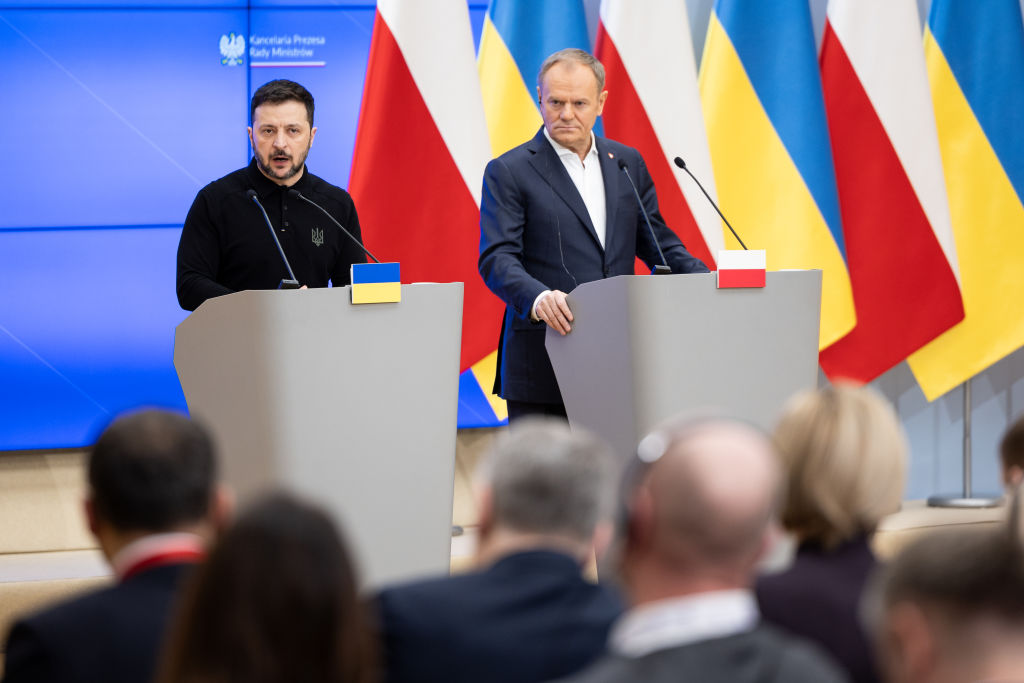Paul Kirby
Europe digital editor in Berlin
Watch: Friedrich Merz thanks voters after German election victory
Friedrich Merz's conservatives have won Germany's election, well ahead of rival parties but short of the 30% vote-share they had expected.
"Let's celebrate tonight and in the morning we'll get to work," he told cheering supporters. His immediate priority is to try to form a government with the third-placed Social Democrats of Olaf Scholz.
Even before the result was clear, Merz said his top priority was unity in Europe, so that "step by step, we can really achieve independence from the US".
The other big winner in Sunday's vote was the far-right Alternative for Germany (AfD), who are celebrating a record second-place result of 20.8%.
The AfD's candidate for chancellor, Alice Weidel, did a victory lap of her supporters, but even her party had hoped for a greater result and the mood at AfD HQ was subdued.
Merz, 69, has never held a ministerial job, but he has promised if he becomes the next German chancellor to show leadership in Europe and beef up support for Ukraine.
Most Germans have been shocked by President Donald Trump's conduct towards Ukraine and Europe and Friedrich Merz said the US leader had shown "the Americans are largely indifferent to the fate of Europe".
Trump has labelled Ukraine's leader a "dictator", and two of his leading figures have openly backed the AfD in the run-up to the vote. Vice-President JD Vance was accused of meddling in the vote during a visit to Munich, while billionaire Elon Musk has made repeated remarks on his X platform.
Friedrich Merz's first priority will be to try to form a coalition with Scholz's centre left, despite the Social Democrats' worst-ever showing of 16.4%.
Merz's Christian Democrat leadership will meet, as will the SPD's, but Scholz will not take part in the talks.
Merz is keen to form a government by Easter. It could be possible, because between the two parties they have 328 seats, a majority of 12 in the 630-seat parliament.
But it was not until the early hours of Monday that that became clear.
After the collapse of Olaf Scholz's three-party coalition late last year, Merz had asked the electorate for a strong mandate to form a clear-cut coalition with one other party.
In the event, he secured enough seats only because two of the smaller parties failed to get into parliament.
A two-party coalition would enable him to solve as many of Germany's problems as he could in four years, he said, from a stagnant economy to closing its borders to irregular migrants.
German voters had other ideas. They came out in big numbers, with a 83% turnout not seen since before reunification in 1990.
Merz's Christian Democrats had been looking for more than the 28.6% of the vote they and their Bavarian sister party received.
His most likely partner was always going to be the Social Democrats - known in Germany as a GroKo, or grand coalition.
But Germany's electorate has fractured, and the two big beasts of its post-war politics can no longer be sure of success.
The AfD under Alice Weidel enjoyed a 10-point increase in support on four years ago, their support boosted by anger over high prices and a series of deadly attacks in German cities.
Three took place during the election campaign.
Weidel also benefited from a successful TikTok campaign, that drew in big numbers of young voters.
As results came in during the early hours of Monday, it became clear the AfD was far ahead of the other parties in the east, with a projected 34% according to a survey for public broadcaster ZDF.
"Germans have voted for change," said Alice Weidel. She said Friedrich Merz's attempt to forge a coalition would ultimately end in failure: "We'll have fresh elections - I don't think we'll have to wait another four years."
But just as the election map turned light blue in the east, much of the rest of Germany turned black - the colour of the CDU.
And Merz dismissed the rise of the AfD out of hand. "The party only exists because there have been problems that haven't been solved. They're happy if these problems get worse and worse."
"We need to solve the problems... then that party the AfD will disappear."
Merz was equally withering towards the new Trump administration.
President Trump did welcome Merz's victory. He said it was proof that Germans were, like Americans, tired of "the no common sense agenda, especially on energy and immigration".
If it was an overture, Merz did not take it as one. He told a roundtable TV discussion on Sunday night that the interventions from Washington had been "no less dramatic and drastic and ultimately outrageous than the interventions we have seen from Moscow".
Last week Trump appeared to accuse Kyiv of starting the war, which Russia unleashed on its neighbour exactly three years ago.
Merz's victory was quickly welcomed across much of Europe. France's Emmanuel Macron spoke of uniting at a time of uncertainty to "face the major challenges of the world and our continent", while UK Prime Minister Sir Keir Starmer sought to "enhance our joint security and deliver growth for both our countries".
Friedrich Merz's Christian Democrats continue to rely on older voters for their success, while voters aged 18-24 appear to be far more interested in both the AfD and another party, the Left, which surged in the polls in recent weeks.
Not long ago the Left was heading out of the parliament with poll numbers well below the 5% threshold.
But a series of TikTok videos showing co-leader Heidi Reichinnek giving fiery speeches in parliament went viral and they ended up close to 9%, and a quarter of the younger vote, according to an ARD survey.

 1 month ago
22
1 month ago
22










 English (US) ·
English (US) ·